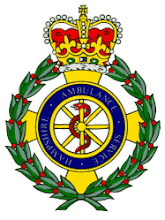One of the beauties of being new within the ambulance service is the opportunity you get to work with lots of different people, as you are often condemned to permanent relief (a shift pattern in the ambulance service that condemns the poor unfortunate to a very irregular shift pattern, at any station of a managers choosing, with anyone they feel like putting you with).
I am constantly reminded as a newbie that there is no bad practice, just differing practice between individuals. This in itself seems strange, but it is true. None of my colleagues that I have been with have bad practice, just different ways of doing things. The advantage then of being on permanent relief with so many different crew mates is that I get to pick the best parts of each persons practice and insert it into my own.
Further to improving practice, there is also the introduction of specially trained mentors, one of which I was crewed with today. They were absolutely brilliant, I was allowed to go through the complete patient care package, which boosted my confidence that I could in fact, do this off my own head.
Now to another less positive aspect of being a trainee, dealing with your first intoxicated (drunk) patient. Now this is not the bit that a trainee is looking forward to and was not an area that I enjoyed dealing with. The patient we were dealing with left me with a feeling of emptiness and despair.
With all the training, education, skills and equipment I have at my disposal, there was very little we could do for this patient. I felt sorry that this individual had no way of making her life better except drowning it in a cocktail of alcohol (and I very much suspected from a clinical perspective, drugs as well). What also scared me was the fact that this individual had no way of telling us what was wrong. You were on tenterhooks on whether she was going to recover or whether she was "going south" (a term I use to describe a patient deteriorating).
The sober realisation I had is this is now a common problem that the ambulance service faces. To this individual we are not an ambulance service, or knights in shining armor to come and save her but a collection agency to deliver them to hospital. Where they will no doubt discharge themselves and I will be back out to pick them up another day.
I think the point I am trying to make to any person joining the ambulance service, is that this is a bare reality of the job and something that we will be increasingly called to. Not quite as "Casualty" as the TV makes out.
Tuesday, 9 September 2008
Subscribe to:
Post Comments (Atom)

No comments:
Post a Comment